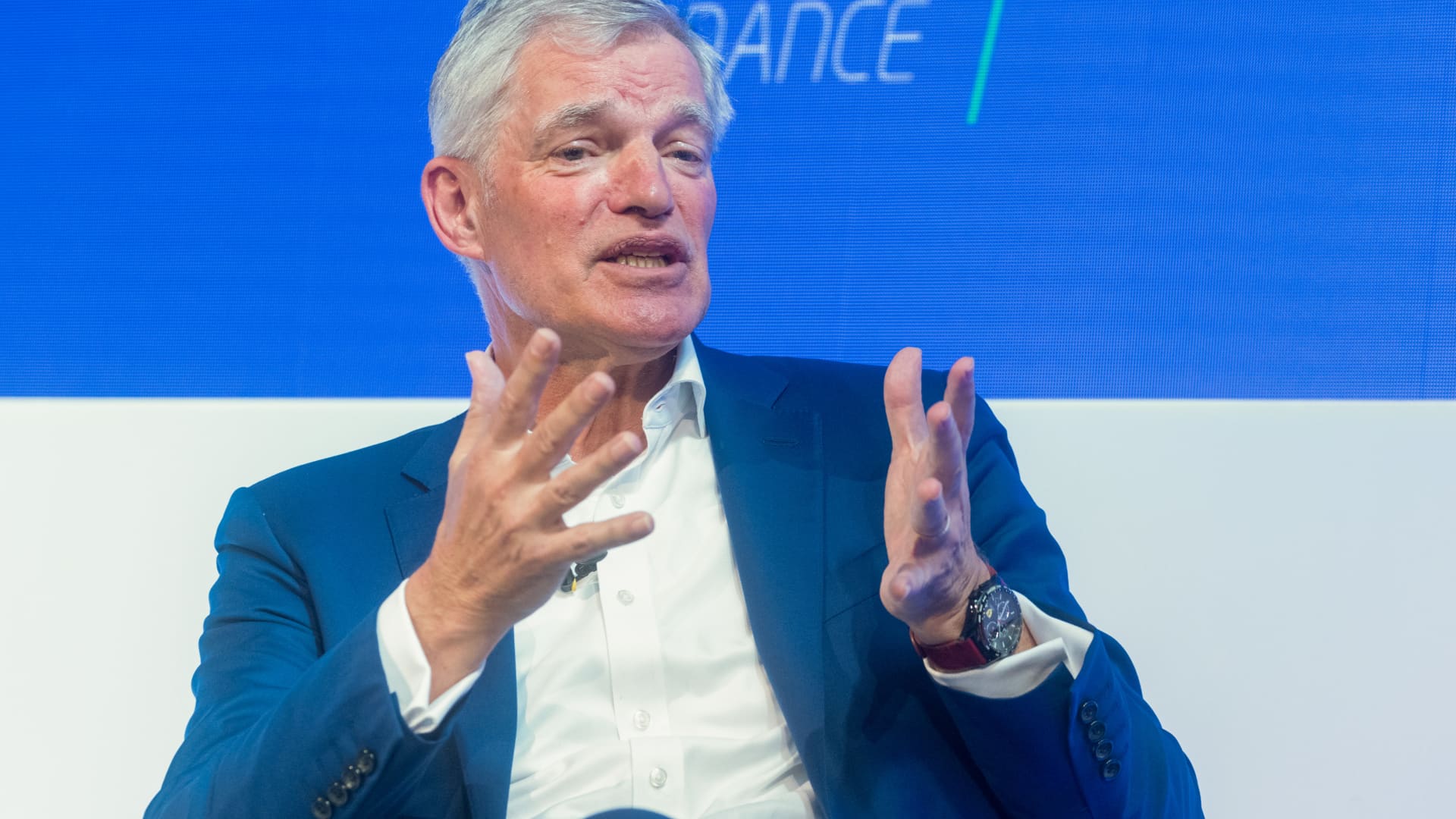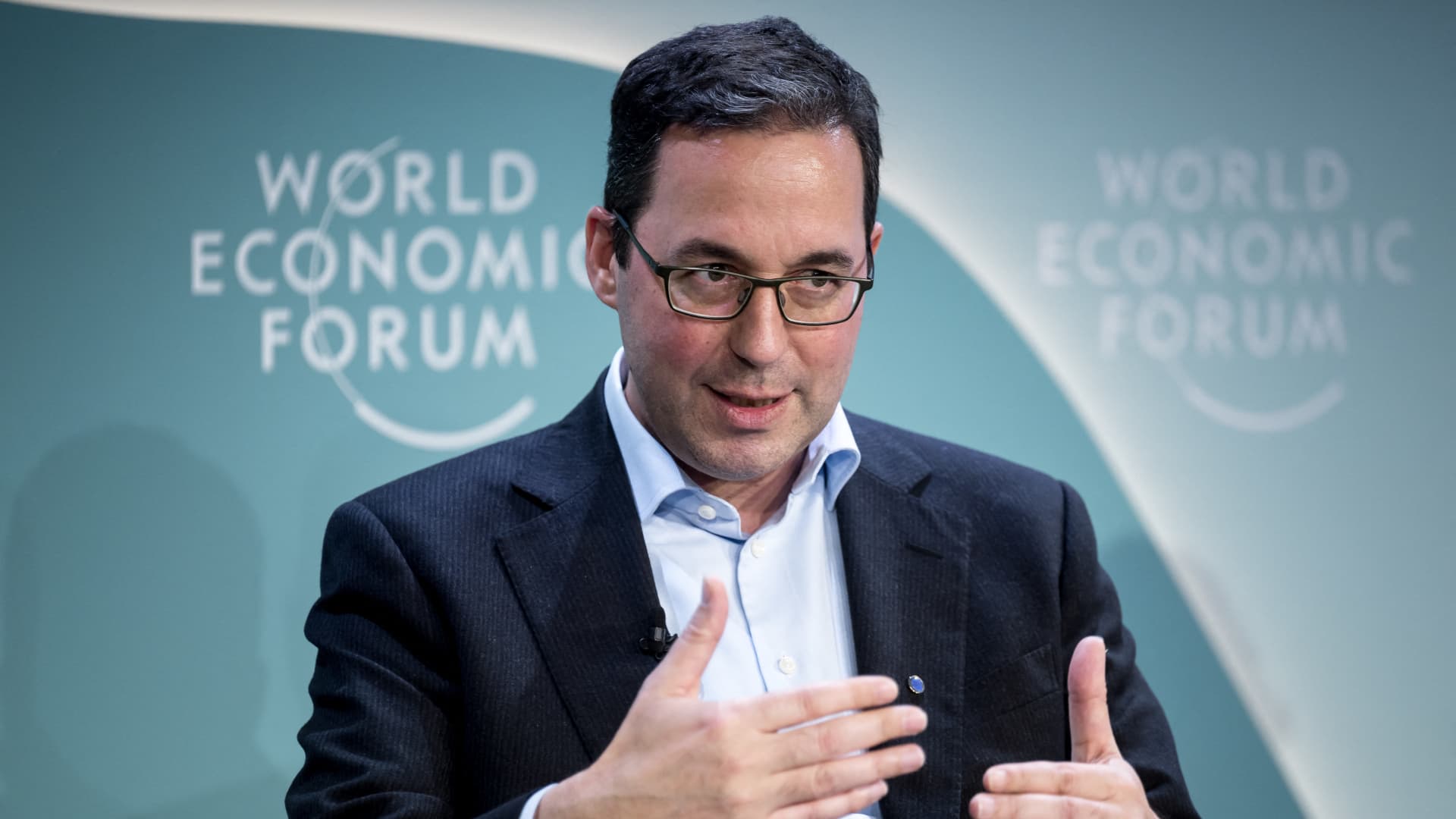Coinbase partner ClearBank posts first full year of profit as revenue almost doubles

ClearBank, a British financial technology firm powering payments for the likes of Coinbase, scored its first full year of profit after higher interest rates helped drive a 91% jump in revenue.
The firm swung to an £18.4 million ($23.3 million) pretax profit in the year ended Dec. 31, 2023, according to financial statements released Thursday. That’s up from a £7.1 million loss in 2022.
The bank first reached profitability on a monthly basis in November 2022. This is the first time it has reported profitability on an annual basis.
ClearBank’s first profit comes on the back of a near doubling of its total income. It saw overall revenue jump 91% year over year in 2023 to £111.3 million.
The firm benefited heavily from high interest rates, which have driven a spike in deposits as consumers and businesses look to gain more bang for their buck by storing cash in interest-bearing accounts.
Tide, one of ClearBank’s major customers in the U.K., has been offering a 4.33% interest rate for its business customers, with advertising across buses and London Underground trains promoting the punchy offer.
Charles McManus, ClearBank’s CEO, told CNBC that the firm was a clear beneficiary of higher rates — but was quick to stress that ClearBank isn’t reliant on interest income and that transaction revenue has been growing healthily as well.
There was “no single driver” of ClearBank’s positive performance in 2023, McManus said, adding the firm benefited from a number of things, such as its clearing business for authorized electronic money firms and growth in the use of bank-to-bank payment services amid higher credit card fees.
“We’ve built the bank and the business model over a number of years,” McManus told CNBC in an interview. “You’re seeing flavors of it across our business lines.”
Higher deposits
However, it’s hard to avoid the fact that higher deposits were a key driver of ClearBank’s performance for the year. The firm says net interest income grew by 142% to £81.9 million, as deposits reached £6.1 billion.
One key driver of deposit growth for ClearBank last year was the collapse of Silicon Valley Bank, a key bank used by fintech startups and venture capitalists. The U.K. ring-fenced division of Silicon Valley Bank, HSBC UK Bank, was bought by British banking giant HSBC for £1 and renamed HSBC Innovation Banking.
This drove a rise in deposits for ClearBank, as customers of SVB fled for alternatives.
“The market [has been] under stress in relation to credit, and banks are going bust, whether it’s Europe, the U.S., or concerns in the U.K. And because of the business model in relation to cash, it being a safe haven,” McManus said.
“Rather than just be a safe haven that cash is collateral for the pain schemes,” McManus added. “The more payments we do, the more cash that we actually need to hold as collateral for our clients for Faster Payments,” which is the U.K.’s scheme for sending electronic, sterling payments in an instant.
“Our customers have actually left more cash with us rather than take the fractional banking risk in relation to Barclays through those stress periods,” McManus noted.
Founded in 2015, ClearBank is a regulated clearing bank and payments institution in the U.K. It provides banking services to the likes of Coinbase, as well as other fintechs like savings apps Chip and Raisin, and business banking startup Tide.
All funds stored in ClearBank accounts are held at the Bank of England, meaning clients holding their money with firms powered by ClearBank’s technology can benefit from high yields on their cash.
ClearBank posted gross fee income of £31.4 million in the full year, with recurring platform a key driver. Embedded banking end-customers, or customers of ClearBank’s customers, grew 93% year over year to 1.2 million.
In no rush for an IPO
McManus said that ClearBank is in no hurry to have an initial public offering, adding that it already has a substantial amount of cash on its balance sheet. In 2022, ClearBank raised £175 million in a financing round led by private equity firm Apax Digital.
ClearBank’s chief said it was important that the firm completes an expansion to the U.S. market before deciding on a public listing. He added that a plunge in shares of Cab Payments, a U.K.-listed payments firm, has made it unattractive for a company like his to decide on a listing in the near term.
ClearBank is currently pursuing a European Union banking license via the Dutch central bank. The firm was hoping to have its license application completed by 2023, but now says it expects to obtain its full EU banking license later this year.
McManus said Brexit has played a role in the firm’s struggle to get a banking license in the EU, as ClearBank is “being looked at very closely in relation to all of that.”
The U.K.’s decision to quit the EU has made it harder for British fintech firms seeking to expand operations in the bloc, as with Britain no longer in the EU single market, financial firms can’t offer “passporting” rights which allow companies to operate a single U.K. license across all EU member states.




